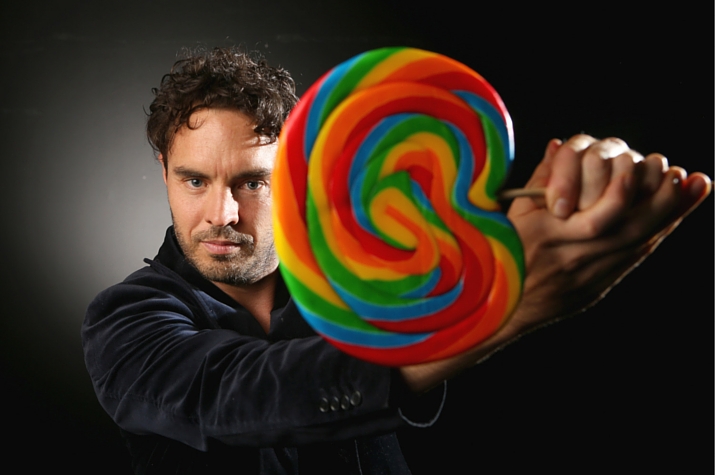Ten top tips - Damon Gameau

First-time filmmaker Damon Gameau reflects on the experience of crafting his documentary, That Sugar Film, and shares 10 things he learnt along the way.
1. Collaboration is key. I learnt this in a big way on That Sugar Film. At the beginning, I wanted to control everything, have it done my way and really tightly steer the ship. I quickly leant that this is not the way to make something the best it can be. Let other talents contribute, have group brainstorming sessions, surrender to collaboration. Inspiration can come from anybody at any time. You just have to be open and ready for it.
2. You really have to love your subject matter. From the first idea or pitch until the lights go down at a cast-and-crew screening can be a very, very long time. It will include funding applications, rewrites and a host of other things you would never expect. It is imperative that you are connected to the material and want to tell the story with all your heart. Your resolve will be constantly tested.
3. Trust the abilities of your team. I didn’t make a feature until my late 30s because I thought I had to know everything about filmmaking first – every lens size, every bit of design jargon, how to edit. Rubbish! Your role is to calmly steer the ship. A truly great film will never be about the director; in truth, it will be about a person who surrounded themselves with amazing talent but was then awarded the credit.
4. Think of your audience. I don’t believe this is done enough with filmmaking. It is often about the ‘art’ or the ‘vision of the director’. While this has merit, I think cinema is a wonderful opportunity to engage a room full of people in a collective emotional experience. What joy! This is an even more precious gift in an era where more and more people are watching films on their own on a laptop. Always consider who your audience is and where they are in the arc of your story.
5. Music is your magic wand. Listen to all sorts of music and always take note of the songs that move you. They might come in handy one day. If I hear something wonderful, I often imagine what the matching visuals could be. Music is the key to your audience’s heart; use it carefully, as it has great power.
6. Have a strong intention. What do you want the audience to think and feel when they leave the cinema? What are you trying to say? This is especially pertinent during the writing phase. If it’s strong enough, it will also allow all your crew, actors and others to get on board. They will have a clearly defined vision of what you are striving for, so teamwork will be a lot easier to achieve.
7. Consider how you are going to get your film seen by an audience. These days, there is so much to compete with that you need to think outside the box, especially in Australia. Is it better to do a screenings tour with Q&As; do you need a really clever social-media campaign in the hope it will go viral; would an online release be smarter than cinema?
8. Embrace the rough cut. This can be a painful experience because you know the film isn’t perfect or finished and you have to show it to people. But you are making it for an audience, so let them see it. They will give you a perspective on it that you may have lost because of hours in an edit suite or living the project for many years. Their feedback can be invaluable and can make the narrative a lot clearer overall.
9. Thoroughly enjoy the process. Making a film is the most thrilling, turbulent, sleepless-night-inducing experience you might ever have (apart from having a baby) but that is what makes it so much fun. There is nothing like the feeling of telling your own story, of creating and sharing a part of yourself with an audience. It is terrifying and exhilarating at the same time. But that’s what life is for, right? Give it a go.
10. The importance of balance. This is probably the most valuable lesson I learnt and I still have a way to go. You need to be able to step away from the process to make it the best it can be. The temptation is to fully immerse yourself and go over every aspect of your project with a fine-tooth comb but, by doing that, you don’t allow space for the magic to come in. You don’t allow something from out of left field, something inspirational that may take your story to another level. Just like freshly baked bread needs time on the windowsill to rise and form, so, too, does your story and project. Learn to step away and give it space to breathe.
Damon Gameau is an Australian television and film actor who is the director of, and lead role in, That Sugar Film. This article was originally published The Equity Magazine.